Dancing in the Dark
Brief Synopsis
Cast & Crew
Irving Reis
William Powell
Mark Stevens
Betsy Drake
Adolphe Menjou
Randy Stuart
Film Details
Technical Specs

Synopsis
In 1932, actor Emery Slade attends the Hollywood premiere of his new film, The Snob , at Grauman's Chinese Theatre and leaves his footprints and signature in the cement in the forecourt. By 1949, Slade is a has-been but is recognized, walking around the Chinese's forecourt, by fellow actor Jean Hersholt. Emery tells Jean that he has been very busy, but Jean is not fooled and, at a board meeting of the Motion Picture Aid Society of which he is president, raises the issue of how the Society might help Emery, who is about to be evicted and has pawned all his possessions. The board members create an uproar at the mention of Emery's name and relate unfavorable incidents involving him. However, Sharkey, a representative from the Twentieth Century-Fox studio, thinks that his boss, Melville Crossman, might be able to put Emery to work. When Barker, another board member, pays a visit to Emery at the rundown Paradise Gardens bungalow court, Emery haughtily rejects the Society's offer of help and throws him out. In the meantime, at Twentieth Century-Fox, Crossman is concerned because he has a start date for a picture, Bandwagon , but no leading lady. Sharkey suggests casting Broadway star Rosalie Brooks but is reminded that her father Joe will not allow her to work in movies as he once lost a vaudeville partner to Hollywood. Sharkey thinks that the former partner, Emery, might be able to persuade Joe to change his mind, and Crossman goes along with the idea. Emery flies to New York with Bill Davis, the studio's top public relations man, whom Emery treats as a servant, on the pretext of looking for an unknown actress to star in the film. Bill's former girl friend, Julie Clarke, who had been under contract at the studio but was let go, shows up at the hotel where they are staying to audition for Emery, but he is out. Bill wants her to marry him, but she has been taking acting and voice classes and really wants to succeed as an actress. Although Bill tells her that the press stories about the studio looking for an unknown actress are phony, Julie decides to return later to see Emery. During dinner at the Stork Club, Emery promotes Bandwagon to Rosalie and Joe, and they all but agree to sign the contract. Later, Julie returns and sings for Emery, and also performs a scene from Cyrano de Bergerac with him. He is impressed enough to ask to see her dance the next morning at a rehearsal hall. Julie tells him that she is from Springfield, Massachusetts, where Emery once played. At a meeting that afternoon with Rosalie and Joe, Emery backs away from the deal, telling them that the picture is no good and that it would not advance Rosalie's career. He also tells them that the studio has offered him a contract if he can sign Rosalie, but he feels that he cannot double-cross them. Joe thanks him for his honesty and integrity. Later, Bill realizes that they still do not have a signed contract with Rosalie, but Emery assures him that he intends to introduce the star at a press reception. Bill is stunned when Emery introduces Julie, but she is very well received and the trio heads back to Hollywood. However, Crossman fires Emery and Bill for not delivering Rosalie and plans to send Julie back East until the New York office calls to report that the press is raving about her. Crossman agrees to do a screen test and Julie records several songs. While on the scoring stage Julie tells Emery that her father deserted her late mother before she was born and she wants to succeed to show her father, no matter where he is, that they did not need him then and she does not need him now. In Emery's office, Julie spots a commemorative cup presented to him in 1925 on the occasion of his final performance with a Springfield stock company and realizes that Emery is her father. Devastated, Julie rejects Emery's help and calls off the test. When Crossman finds out that Emery could have signed Rosalie, he fires Emery, Bill and Julie. However, Bill decides to shoot a test of Julie with his own money and "borrows" the playback recordings Julie has already made. Meanwhile, Emery works on persuading Julie not to return to New York by challenging her to do the test. Bill lines up a costumer, cameraman and editor and Emery directs the test. Later, Bill tricks the projectionist at Grauman's Chinese into including the test as part of the newsreel being screened at the premiere of Prince of Foxes . Julie's dance number is very well received, and Crossman congratulates all concerned and asks Emery to direct Bandwagon . Julie, now reconciled with her father, agrees that he should direct her.

Director
Irving Reis
Cast

William Powell

Mark Stevens

Betsy Drake
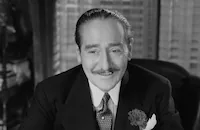
Adolphe Menjou

Randy Stuart
Lloyd Corrigan
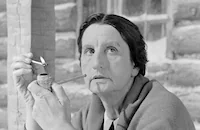
Hope Emerson

Walter Catlett
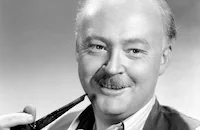
Don Beddoe

Jean Hersholt
Sid Grauman
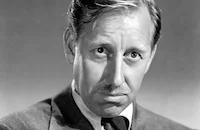
Frank Ferguson
Charles Tannen
Harry Crocker
Louis Bacigalupi
Syd Saylor
Milton Parsons

Byron Foulger
Edward Clark
Max Willenz

Gregory Gay
Erville Alderson
Sherry Hall
Jean "babe" London
Kathryn Lang

George Beranger
Walter Clinton
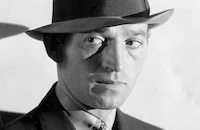
George E. Stone
Belle Daube
Grandon Rhodes

Larry Keating
Claire Whitney
John Davidson

Joseph Crehan
Joe Bautista
George Mcdonald
Bob Adler
Ernie Flatt
Roy Fitzell
Robert Dayo
Jack Regas
Tex Brodus
George Foster
Ann Corcoran
Phyllis Planchard
Claire Richards
Elaine Edwards
Harry Seymour
Fred Fisher
Sammy Finn
Cosmo Sardo
Crew
Duke Abrahams
Larry Airhart
Sid Bowen
Irene Brooks
Jerry Bryan
Esperanza Corona
Ken Darby
George W. Davis
Howard Dietz
Leonard Doss
Jay Dratler
Seymour Felix
Myrtle Ford
Paul S. Fox
Bernard Freericks
George Gittens
Max Golden
Earle Hagen
Roger Heman
Bruce Hunsaker
Harry Jackson
George Jessel
Charles Lemaire
Thomas Little
Louis Loeffler
Cliff Maupin
Bernard Mayers
Mary C. Mccall Jr.
Cyril J. Mockridge
Alfred Newman
Alfred Newman
Ben Nye
Edward Powell
Bill Riddle
Irving Rosenberg
Arthur Schwartz
Fred Sersen
Dave Silver
Herbert Spencer
William Travilla
Marion Turk
Thomas Tuttle
Henry Weinberger
Lyle Wheeler
Joseph C. Wright
Darryl F. Zanuck

Film Details
Technical Specs

Quotes
You! You! Just who do you think you are?- Mrs. Schlaghammer
I know who I am, Mrs. Schlaghammer. What's more, I know who my father was. And that, around here, is a unique distinction.- Emery Slade
Trivia
Crossman's office is a replica of producer Darryl F. Zanuck's.
Notes
Working titles of this film were The Bandwagon and Julie. According to documents in the Twentieth Century-Fox Records of the Legal Department and the Twentieth Century-Fox Produced Scripts Collection at the UCLA Arts-Special Collections Library, in November 1943 the studio purchased rights to the 1931 Broadway revue The Band Wagon from Gregory Ratoff Productions, Inc. The first screenplay from the property, written in August 1945, was titled Girl in the Moon but was largely adapted from the 1940 Fox hit Star Dust (see AFI Catalog of Feature Films, 1931-40; F3.4292). Plot developments in Star Dust were retained for what eventually became Dancing in the Dark. In the spring of 1946, Mary C. McCall, Jr. was assigned to write another screenplay. In a May 1946 memo to producer George Jessel and McCall, studio head Darryl F. Zanuck wrote that, "Everything about Hollywood should be done very honestly and very reasonably. The Big Boss should be a guy with a sense of humor. He should not be the obvious movie mogul or the eccentric idiot. If you give him a good sense of humor and he is able to laugh at his own tough luck or bad judgment, it will do a great deal toward making the picture honest as well as add a bit of dignity to our industry." In 1947 and 1948, Jay Dratler and Marion Turk contributed revisions of McCall's screenplay. Writers John Larkin, Frank Gabrielson, Howard Dimsdale and Jerome Cady also worked on the project, but the extent of their contribution to the released film has not been determined
As the final screenplay bore no resemblance, beyond the use of certain songs, to the original stage revue, which featured dance numbers with Fred and Adele Astaire interspersed with comedy sketches, Jessel wrote to the revue's author George S. Kaufman in May 1949: "I understand from our legal department that if we use the title Bandwagon and a portion of the musical material, we must incorporate in the main title your name....I am writing this to you personally as I am sure you do not want any credit (and particularly a small unimportant one) on a picture of which you have never seen the manuscript and have had nothing to do with and particularly since there is no guarantee that the picture will be good." Kaufman responded, "Of course I don't want credit on Bandwagon, since I have written none of it. But, since it isn't Bandwagon, why are you calling it that? (Dietz told me to ask that.)" The revue's co-author, Howard Deitz, requested credit only for the songs. Although the film's title was changed to Dancing in the Dark in late May 1949, the studio's legal department was adamant that the original production had to be credited in accordance with their original contractual obligations.
A further legal complication involved the use of lines from the play Cyrano de Bergerac, which was in the public domain in the U.S. but fully protected in France and other Berne Convention countries. The problematic lines were eliminated from prints made for foreign release.
A October 3, 1945 Hollywood Reporter news item reported that Dick Haymes was to star for producer George Jessel and director Gregory Ratoff. In a December 1945 memo to Jessel, Zanuck viewed the project as a potential vehicle for Clifton Webb. In December 1946, Betty Grable was being considered for the role of "Julie." In April 1947, when the production was known briefly as Julie, a Los Angeles Times news item reported that John Payne and Jean Peters would star. In a November 1948 memo to Jessel, Zanuck wrote, "In thinking about it Adolphe Menjou or Frank Morgan could play the leading role. Both would be superb. But I definitely think we should not consider it for Clifton Webb. He is now so identified as "Mr. Belvedere" that I am afraid he must play either "Mr. Belvedere" or big dramatic roles where there can be no comparisons made. . . .If Betty Lynn makes a hit in Mother Is a Freshman she will be sensational as the girl because she sings and dances in addition to being a sensational actress." At the end of 1948, the Los Angeles Times announced that John Lund would star. Studio documents indicate that Betsy Drake was a last minute replacement for June Haver and reveal that Helen Westcott, Marion Marshall, Dick Cogan, Alvin Hammer, Charles Farris, Helen Brown, John Berkes and Fred Kelsey had bit roles which were eliminated from the final cut.
A press release in the AMPAS clipping files notes that "Crossman's" office was a reproduction of Zanuck's. "Melville Crossman" was a pseudonym used by Zanuck during his writing career. According to a news item in Hollywood Citizen-News, Jean Hersholt, playing himself as head of the Motion Picture Relief Fund, turned over half of his salary for the picture to the fund. Actor Lloyd Corrigan was also a MPRF board member.
In 1953, M-G-M released another version of The Band Wagon, with a new story and screenplay by Betty Comden and Adolph Green. That version, which starred Fred Astaire and Cyd Charisse, was directed by Vincente Minnelli.












